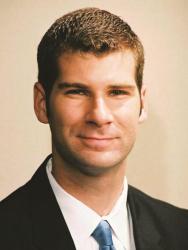Executive Summary
It is hard to imagine that it has been five years since the 9-11 attacks. The scope of developments and actions that followed is breathtaking, from two ground wars and over 20,000 American casualties, to a complete jettison of 60 years of American strategic doctrine aimed at preserving stability in the Middle East.
The distance of time now allows us to step back and weigh the consequences. The echoes of the attacks were felt in everything from the invasion of Iraq and the massive political changes that swept Palestine, Egypt, Lebanon, etc. to the Danish cartoon controversy. History, though, will judge these to be but theaters within a much larger problematique that will shape American grand strategy over the next decades. Five years in, it is now clear that the 9-11 attacks created a new dynamic for global politics, and thus American foreign policy, centering around the changed relationship between a state and a religion. The most dominant superpower in world history and the world’s fastest growing religious community of 1.4 billion Muslim believers now stand locked in a dynamic of mutual suspicion, distrust, and anger. It continues to spiral worse. We have entered the era of the 9-11 War, a contestation in the realm of ideas and security that is quintessentially 21st century in its modes and processes. This melding of hot and cold war is not a battle between, but a battle within. Most worrisome, five years in, it is not going well so far for either the U.S. or the Muslim world.
The ensuing analysis traces how the 9-11 attacks opened up a swirl of debate and controversy on everything from the sources of terrorism to how best to defeat radicalism. It finds that for all the partisan rancor that seems to touch everything from Iraq to the Dubai Ports controversy, an underlying consensus has emerged on the key problems the U.S. faces in the 9-11 War. A new doctrine of constructive destabilization and multifaceted implementation now underlies our grand strategy. This underscores everything from the buzzword of “reform” to the raised attention on the socio-economic processes that support radicalism.
However, the burgeoning consensus is simply not enough. Key hurdles of implementation must be overcome, with a critical need to define just how the U.S. will match lofty words to actual deeds and bold intentions to real policy capabilities. These challenges are tough enough, but, even more important is the recognition and resolution of three crucial questions of strategy that will hover over all policies in the long-term. If it is ever to meet with any success, the U.S. must soon resolve how it will 1) support change while recognizing its incapacity to control which local forces will benefit from it, 2) react to the reform debate within the Muslim world without undermining it, and 3) respond to the massive demographic change that will reorder politics and societies in the generation ahead. Much as the doctrine set in the late 1940s laid the groundwork for ultimate Cold War success in the 1980s, the framework that we now give to our policies will determine our ultimate 9-11 War victory or failure decades from now.



